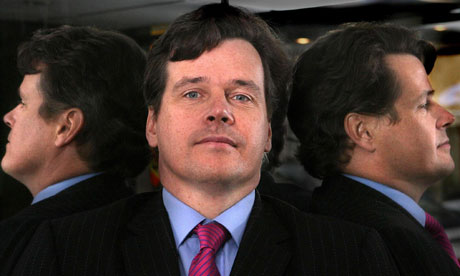
Patients are being assessed for Britain's first face and hand transplant – a procedure that has been performed only once before in the world. That patient died of a heart attack in a second operation to tackle an infection two months after the transplant, which took place in France.
A team at the Royal Free hospital in London revealed it was preparing for surgery on several people who had combined face and hand injuries, but could not say when the first might happen.
The news came days after surgeons in the US performed their country's first full face transplant, the latest in international high-risk, but rapidly advancing, developments to hone new techniques.
In all there have been 11 partial or full face transplants and about 60 hand transplants worldwide, including a small number of double hand transplants.
Peter Butler, director of surgery and trauma at the Royal Free, received the go-ahead for the UK's first full face transplant in 2006, nearly a year after the world's first partial face transplant in Amiens, France, but his team is still awaiting a suitable donor. The first full face procedure was carried out in Spain last year.
The NHS's National Institute for Health and Clinical Excellence (Nice) said there needed to be more evidence on the risks and benefits of hand transplants. Health professionals should explain uncertainties to all those considering the operation before they gave their consent, it said.
Surgeons had asked Nice to look at issues surrounding the operation, including how safe it was and how well it worked. But Nice has no power to stop it going ahead.
Butler, who heads the UK Facial Transplantation Research Team, said: "We have a number of patients that we have seen with combined face and hand injuries and a number are potentially going to be done. Some 60 hand transplants have been carried out worldwide but more work is needed to ensure patients are suitable."
People suffer combined face and hand injuries because they tried to protect their faces in accidents, said Butler.
Burn and blast victims and people who had had serious infections were among those being assessed by the team, which was sharing information with others in Birmingham, Austria and the US.
Butler said there had been no match yet among potential donors for patients needing face transplants. "A combined hand and face transplant adds some complexity to the surgery, but has benefits for the patient in that it gives them extra functionality. It is not immunologically different or psychologically different [to carrying out a face transplant].
"Every patient going through the process has unique matching requirements, so if a patient with a hand and face requirement matched the donor then that patient would be done."
The Nice specialist committee on surgical procedures said there was "currently not enough evidence to allow it to draw firm conclusions" on hand transplants. Possible risks included rejection, blood clots and infection. Patients would also need anti-rejection drugs for all their lives.
Bruce Campbell, the committee chair, said: "Hand transplantation may offer carefully selected patients a hand which looks more natural than a mechanical prosthesis and which restores some sensation and movement.
"People who agree to the procedure must be prepared for prolonged rehabilitation and the need to take medication for the rest of their lives.
"Nice recognises that the procedure should only be carried out in experienced units and that considerable teamwork is required in order to achieve worthwhile results."
The world's first hand transplant patient, New Zealander Chris Hallam, who underwent the procedure in France in 1998, later had it amputated – with surgeons claiming he had not taken proper care of it.

